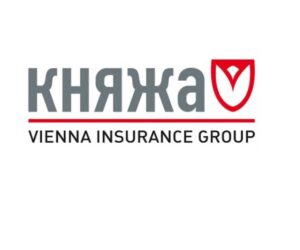
On October 2, shareholders of the insurance company Busin (Kyiv) decided to change the size of previously approved dividends for 2023 to UAH 12.043 million from UAH 15.999 million. The company announced this in the information disclosure system of the National Commission on Securities and Stock Market (NCSSM).
Dividends will be paid directly to shareholders with the calculation of UAH 49.36 per share.
As reported, the shareholders of IC Busin at the meeting on May 3, 2024 approved the profit of 55.218 million UAH for 2023 and the decision to direct to the payment of dividends of 15.999 million UAH, and 39.219 million UAH to remain undistributed.
Earlier, the company’s shareholders allocated UAH 13.6 million for dividend payments in 2022, UAH 11.4 million in 2021, and UAH 16 million in 2020.
According to the data of NCSSM as of the second quarter of 2024, the shareholders of the insurer are Larisa Nepochatova and Alexey Ovchinnikov (25% each), Alexander Nepochatov (24,99%), Denis Ovchinnikov and Ivan Ovchinnikov (12,495% each),
IC Busin was registered in February 1993. It specializes on risk types of insurance. It is a member of a number of professional and industry associations: League of Insurance Organizations of Ukraine, National Club of Insurance Payouts, International Association of Aviation Insurers (UA), Nuclear Insurance Pool, American Chamber in Ukraine, British Business Club.

Ferrexpo plc, a mining company with major assets in Ukraine, produced 4 million 567.168 thousand tons of pellets in January-September this year, up 41.9% year-on-year (3 million 218.273 thousand tons).
According to a press release on Monday, Ferrexpo produced 1 million 269,727 thousand tons of pellets in the third quarter of this year, down 14.4% from the previous quarter (1 million 483,468 thousand tons).
At the same time, the total production of commercial products (pellets and iron ore concentrate) in the first nine months of 2014 increased by 47.5% compared to the same period in 2023, to 5 million 125.034 thousand tons from 3 million 474.860 thousand tons. In particular, the production of commercial concentrate amounted to 557.866 thousand tons against 256.587 thousand tons in January-September 2023.
In addition, it is specified that the company, in particular, produced 326.168 thousand tons of DR pellets in the first nine months of 2014 (it did not produce any in the first nine months of 2013), 3 million 780.610 thousand tons of premium pellets and 460.390 thousand tons of other pellets.
The press release notes that during the quarter, the Group successfully operated one or two pelletizing lines (out of four), with a focus on producing higher quality products. DR pellets production continued during the third quarter, with a total of three deliveries to two customers.
Commenting on the Group’s performance, Lucio Genovese, Interim Executive Chairman, stated that the third quarter was a very challenging operational and macroeconomic environment for the company.
“As we emphasized in our interim results, the requirement to import 80% of our electricity from our western neighbors remains in place, and the resulting high tariffs continue to have a negative impact on our costs. The situation is further complicated by higher shipping rates and additional costs for war risk insurance,” Genovese said.
According to him, to mitigate the pressure on profitability, the group’s strategy was to focus on selling higher quality iron ore products to customers in close geographical proximity. This involved expanding the customer base and selling premium DR pellets in the MENA region.
The top manager emphasized that the ability to quickly adapt to modern challenges is a testament to the flexibility built into the operating model. This allowed the company to slightly reduce the impact of both the aforementioned factors and lower iron ore prices, when the fall in the 65% Fe benchmark price briefly tested price support levels of $100/tonne during the quarter, bottoming out at levels last seen in 2022.
At the same time, Genovese emphasized some positive changes in the market at the end of the reporting period: prices began to recover amid improved sentiment caused by the announcement of economic stimulus measures in China.
For his part, Group CFO Nikolay Kladiev noted that the combined effect of much lower iron ore prices and higher production costs put significant pressure on earnings in the third quarter.
“The high electricity tariffs that I pointed out in the interim period continue to grow and increase our C1 costs compared to the initial period. This year we also continued to see higher freight rates and additional war risk insurance premiums. In response, we have sought to contain costs wherever possible and manage our cash position, which remained at around $100 million at the end of the third quarter,” explained the CFO.
He also said that in the last days of September, Chinese stimulus measures, including the lifting of restrictions on home purchases, provided long-awaited support for iron ore prices.
“The pessimism about iron ore prices seems to have subsided for now, but the recent volatility in the third quarter does not provide any assurance that prices will remain at this level or improve further. We will continue to maintain a vigilant approach to our financial and operational performance for the remainder of the year,” Kladiev concluded.
As reported earlier, Ferrexpo produced 3.845 million tons of pellets in 2023, down 36.5% from 2022.
Ferrexpo owns a 100% stake in Yeristovo Mining, 99.9% in Bilanivsky GOK and 100% in Poltava Mining.
Number of dead and wounded civilians in Ukraine from 24.02.2022 till 31.07.2024 un data

Open4Business.com.ua

In January-June 2024, the insurance company “Knyazha Life Insurance Group” (Kyiv) collected UAH 28.843 million of insurance payments, which is 1.4% less than in the same period a year earlier.
This is reported on the website of the rating agency Standard-Rating, which affirmed the company’s financial strength rating/credit rating at uaAA+ for the reporting period.
The volume of insurance payments and reimbursements made by the company for the first half of 2024 amounted to UAH 11.8 million, which is 39.9% less than the volume of payments for the first half of 2023.
Thus, the insurer’s claims ratio decreased by 26.22 percentage points to 40.91%. The insurer’s acquisition expenses for the first six months of 2024 amounted to UAH 0.790 million, which is 81.83% less than in the same period of 2023.
According to RA, the company’s operations were profitable in the first half of 2024. In particular, the insurer’s net profit for the first half of 2024 amounted to UAH 5.267 million.
As of July 1, 2024, the company’s assets increased by 6.88% to UAH 852.216 million, equity – by 1.16% to UAH 278.167 million, liabilities – by 9.90% to UAH 574.049 million, while cash and cash equivalents decreased by 28.31% to UAH 1.795 million.
Thus, as of the beginning of the second half of 2024, equity capital covered 48.46% of the insurer’s liabilities, and 0.31% of its liabilities were secured by cash and cash equivalents.
Also, as of July 1, 2024, the insurer formed a portfolio of financial investments in the amount of UAH 825.354 million, which included bank deposits and investments in government bonds. Thus, as of the beginning of the second half of 2024, liquid assets (cash and cash equivalents, bank deposits and government bonds) were 1.44 times higher than the insurer’s liabilities.
RA notes that a high level of external support for the company is provided by its shareholder, Vienna Insurance Group Wiener Städtische Versicherung AG, an international insurance group headquartered in Austria, represented by 50 companies in 30 countries and a leader in the insurance market of Central and Eastern Europe.

The volume of insurance of agricultural risks has decreased fivefold over the past three years, as noted at a meeting of experts from the Ministry of Agrarian Policy and Food of Ukraine and representatives of the insurance market, which was attended by the League of Insurance Organizations of Ukraine (LIOU). According to the UIO website, according to NBU statistics, in 2015-2021, the amount of insurance payments for the voluntary type of “agricultural insurance” averaged UAH 243-245 million, in 2022 – UAH 80.7 million, and in 2023 – UAH 53.1 million. This indicates the insignificance of agricultural risk insurance given the importance and share of the industry in the country’s domestic product.
“We believe that the change in demand for agricultural insurance correlates with the amount of state support for agricultural producers. First of all, we are talking about lending and the mechanism of partial compensation of the interest rate on bank loans, when farmers gained access to credit through agricultural risk insurance,” said Viktor Berlin, President of the League of Ukrainian Agrarians.
He also emphasized that small farmers need the most support in wartime, and the introduction of mechanisms to stimulate agricultural insurance is one of the elements of financial support for their business.
Currently, the League is analyzing the issues of agricultural insurance in order to identify barriers that prevent the expansion of the number of insurers participating in agricultural insurance programs with state support.